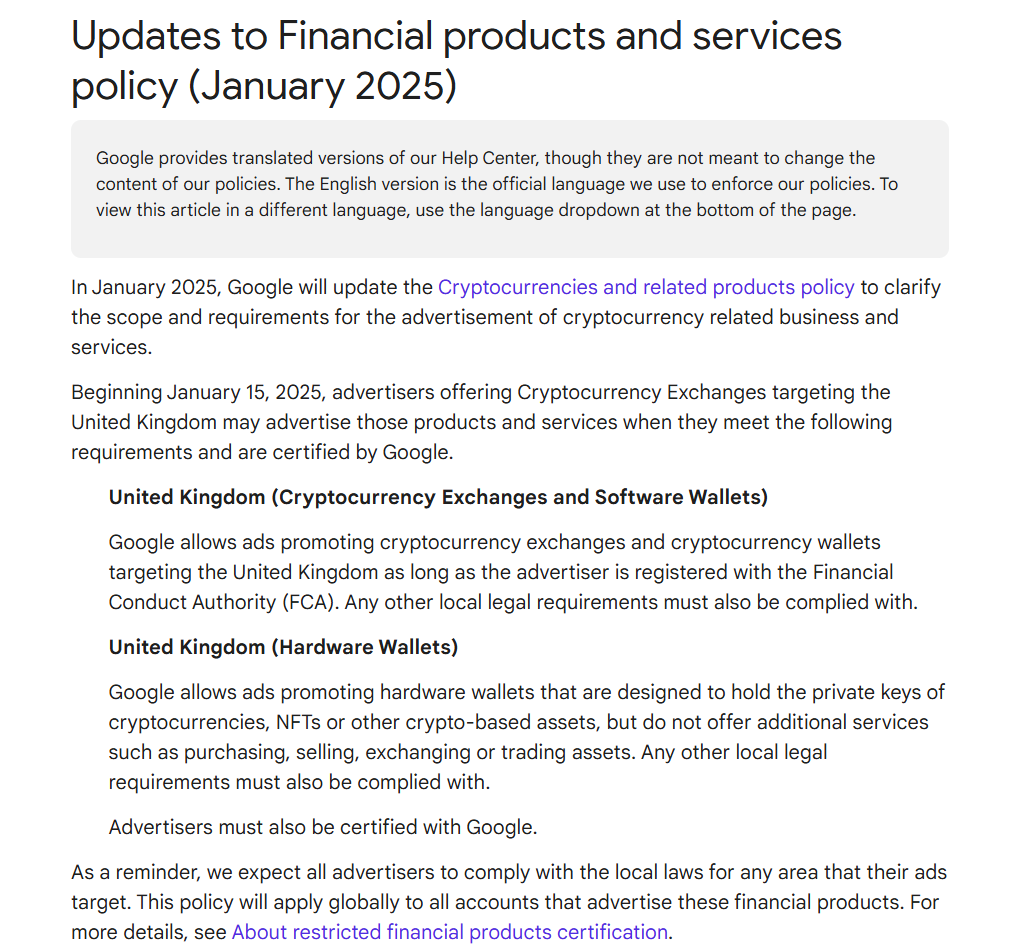Key takeaways
- Google will require UK crypto advertisers to obtain FCA authorization from January 2025.
- Hardware wallets can advertise without FCA registration if they only store private keys.
Share this article
Google is updating its crypto ads policy, imposing stricter requirements on advertisers looking to promote crypto services and products in the UK. The updated rules will require crypto exchanges and software wallet providers to register with the Financial Conduct Authority (FCA) before advertising on its platform.
Although these services are subject to the FCA’s strict registration requirements, advertisements for hardware wallets are subject to different rules. The new policy allows advertising on hardware wallets without registration with the FCA, provided that the devices are used only to store private keys and do not facilitate trading or exchange services.


All advertisers must become Google certified and comply with local regulations in their target markets. The policy update, which came into effect on January 15, applies globally to all accounts advertising these financial products.
Google has repeatedly adjusted its cryptocurrency advertising policy. In 2018, all crypto-related ads were banned due to concerns about scams. This stance has softened in 2021, with Google allowing ads from regulated crypto exchanges and wallet providers, albeit under specific conditions.
The turning point was the arrival of spot Bitcoin ETFs in the United States. In late 2023, Google announced updates to its advertising policy, which allows ads for “Cryptocurrency Coin Trusts,” starting January 29.
This change came as Wall Street and the crypto world were heavily focused on the SEC’s impending decision regarding Bitcoin spot ETFs. A few weeks later, on January 10, the SEC officially approved the trading of these funds.
Share this article

